104 equals 364 - 260, and supposing we should expand 52 into
twice its length the sum of this conceptual construction
could become:
|
52 |
91 |
91 |
91 |
91 |
52 |
|
52 |
156 + 104 = 260 =
20 * 13 (= 46 + 214) |
52 |
|
260 + 104 = 364 =
28 * 13 (= 84 + 280)
364 / 7 = 52 and 52 / 4 = 13.
Conjunction: 7 * 13 = 91 = 364 / 4 |
|
364 + 104 = 468 =
36 * 13 (=
78 + 390) |
At the time of Bharani day 468 corresponded to the position
which at the time of the Bull would have arrived 64 - 41 = 23
precessional days earlier. 468 - 23 = 445 = 365 + 80 = 365 + 64
+ 16. At the time of the Bull they had waited for the return into
sight of the star which rose together with the Sun, around 16
days beyond its true heliacal rising:
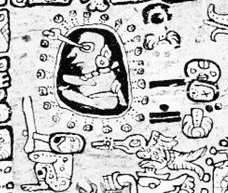
|
0h (64 +
16 = 80) |
MARCH 22
(*1) |
23 (82) |
|
no glyph |
 |
 |
|
Ga1-1 |
Ga1-2 |
|
CLOSE TO
THE SUN: |
|
HYADUM II = δ¹ Tauri
(64.2) |
Net-19 (Crow)
AIN (Eye)
=
ε Tauri,
θ¹
Tauri,
θ²
Tauri (65.7) |
no star
listed (66) |
|
May 24 |
25 (145 = 290 / 2) |
26 (*66) |
|
°May
20 |
21 (*61) |
22 (142) |
|
'April
27 |
28 (118
= 236 / 2) |
29 (*39
= *66 - *27) |
|
"April 13 (365 +
103 = 468) |
14 (104) |
15 (*25
= *39 - *14) |
|
DAY 64
(= 80 - 16) |
65 |
66 |
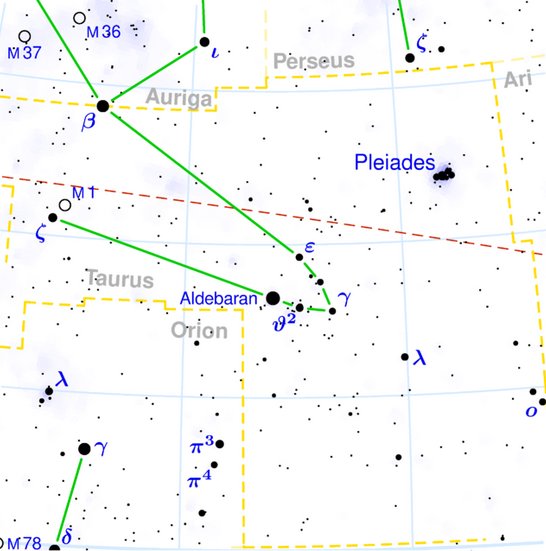 |
|
CLOSE TO THE FULL
MOON: |
|
SEPT 20
(80 + 183) |
21 (248
+ 16 = 264) |
EQUINOX
(*185 = *249 - *64) |
|
Heart-5 (Fox)
σ Scorpii
(247.0),
HEJIAN
=
γ
Herculis (247.2),
ψ
Ophiuchi (247.7) |
ρ
Ophiuchi (248.1),
KAJAM (Club) =
ω
Herculis
(248.3),
χ
Ophiuchi (248.5),
SHE LOW (Market Tower) =
υ
Ophiuchi,
Tr.
Austr. (248.7), ζ Tr. Austr. (248.8) |
Al Kalb-16 (The Heart) /
Jyeshtha-18 (Eldest) /
ANA-MUA-1 (Entrance pillar)
ANTARES = α Scorpii
(249.1),
MARFIK (Elbow) = λ Ophiuchi,
φ Ophiuchi (249.5), ω Ophiuchi (249.8) |
|
Nov 23
(327) |
24 |
25 (*249) |
|
°Nov 19 |
20
(*244) |
21 (325) |
|
'Oct 27
(300) |
28 |
29
(*222) |
|
"Oct 13
(286) |
14 |
15
(*208) |
|
DAY 247
(= 263 - 16) |
248 (=
328 - 80) |
249 |
April 13 was day 365 + 103 = 468 = 6 * 78 (although 413 = 14 *
29½), and - we should remember - at the time of rongorongo Rigel
rose 78 days after 0h.
... On Easter Island they probably regarded Rigel (the Foot) as
the point for the beginning of the year, because like the
Chatham people they lived far down in the south:
... In view of the almost universal prevalence of the Pleiades
year throughout the Polynesian area it is surprising to find
that in the South Island and certain parts of the North Island
of New Zealand and in the neighboring Chatham Islands, the year
began with the new Moon after the yearly morning rising, not of
the Pleiades, but of the star Rigel in Orion ...
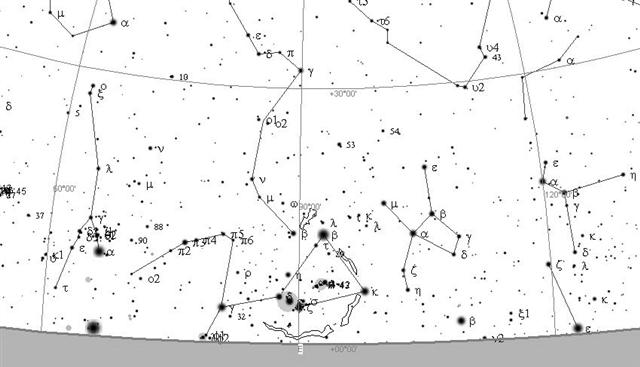
| tagata tuu rima ki
ruga |
te maitaki |
te henua |
Rei
hata ia |
tagata
rogo |
|
... the first month of the
Moriori year, was named Rongo (Lono).
On the first of the new year the Moriori
launched a small canoe to Rongo, although
they built and used only rude craft for their
fishing excursions. The canoe was manned by twelve
figures symbolizing the personifications of the
twelve months. Sometimes twenty-four figures were
placed in the canoe, and Skinner interprets the
additional twelve as representing the female
counterparts of the months. As an old Maori once
remarked. 'Everything has its female counterpart
... |
 |
 |
 |
 |
 |
|
Ca3-21
(→ March 21 → Gregorian equinox) |
Ca3-22
(73) |
Ca3-23 |
Ca3-24 |
Ca3-25 (→ March 25→
Julian equinox) |
|
Hata.
1. Table, bureau. P Pau.: afata, a chest,
box. Mgv.: avata, a box, case, trunk, coffin.
Mq.: fata, hata, a piece of wood with
several branches serving as a rack, space, to
ramify, to branch; fataį, hataį,
stage, step, shelf. Ta.: fata, scaffold,
altar. 2. Hakahata, to disjoint;
hakahatahata, to loosen, to stretch. P Pau.:
vata, an interval, interstice. Mgv.: kohata,
the space between two boards, to be badly joined;
akakohata, to leave a space between two bodies
badly joined; hakahata, to be large, broad,
wide, spacious, far off. Mq.: hatahata,
fatafata, having chinks, not tightly closed,
disjointed. Ta.: fatafata, open. 3.
Hatahata, calm, loose, prolix, vast. Mgv.:
hatahara, broad, wide, spacious, at one's ease.
Ta.: fatafata, free from care. Mq.:
hatahata, empty, open. 4. Hatahata, tube,
pipe, funnel. Churchill. Sa.: fata, a raised
house in which to store yams, a shelf, a handbarrow,
a bier, a litter, an altar, to carry on a litter;
fatāmanu, a
scaffold. To.: fata,
a loft, a bier, a handbarrow, to carry on a bier;
fataki, a
platform. Fu.: fata,
a barrow, a loft; fatataki,
two sticks or canes attached to each other at each
side of a house post to serve as a shelf. Niuē:
fata, a
cage, a handbarrow, a shelf, a stage, (sometimes)
the upper story of a house. Uvea: fata,
a barrow, a bier. Fotuna: fata,
a stage. Ta.: fata,
an altar, a scaffold, a piece of wood put up to hang
baskets of food on; afata,
a chest, a box, a coop, a raft, a scaffold. Pau.:
fata, a
heap; afata,
a box, a chest. Ma.: whata,
a platform or raised storehouse for food, an altar,
to elevate, to support. Moriori: whata,
a raft. Mq.: fata,
hata,
hataį,
shelves. Rapanui: hata,
a table. Ha.: haka,
a ladder, an artificial henroost; alahaka,
a ladder. Mg.: ata,
a shelf; atamoa,
a ladder; atarau,
an altar. Mgv.: avata,
a coffer, a box. Vi.: vata,
a loft, a shelf; tāvata,
a bier. The Samoan fata
is a pair of light timbers pointed at the ends and
tied across the center posts of the house, one in
front, the other behind the line of posts; rolls of
mats and bales of sennit may be laid across these
timbers; baskets or reserved victuals may be hung on
the ends. The litter and the barrow are two light
poles with small slats lashed across at intervals.
The Marquesan fata
is a stout stem of a sapling with the stumps of
several branches, a hat tree in shape, though found
among a barehead folk. These illustrations are
sufficient to show what is the common element in all
these fata
identifications, light cross-pieces spaced at
intervals. With this for a primal signifaction it is
easy to see how a ladder, a raft, a henroost, an
altar come under the same stem for designation.
Perhaps Samoan fatafata
the breast obtains the name by reason of the ribs;
it would be convincing were it not that the
plumpness of most Samoans leaves the ribs a matter
of anatomical inference. Churchill 2. ...
Teke said to Oti, 'Go and take the
hauhau tree, the paper mulberry tree, rushes,
tavari plants, uku koko grass, riku
ferns, ngaoho plants, the toromiro
tree, hiki kioe plants (Cyperus vegetus),
the sandalwood tree, harahara plants, pua
nakonako plants, nehenehe ferns, hua
taru grass, poporo plants, bottle gourds
(ipu ngutu), kohe plants, kavakava
atua ferns, fragrant tuere heu grass,
tureme grass (Diochelachne sciurea),
matie grass, and the two kinds of cockroaches
makere and hata.'
... The division into quarters of a 28-series
can be applied to the main phases of the moon during
the visible period as was as to a (reflex of the old
world?) sidereal month.
The separate subgroup (29 makere - 30
hata) consists of the names of two types of
cockroaches, but in related eastern Polynesian
languages these names can also be explained on a
different level. MAO. makere, among others,
'to die', and whata, among others, 'to be
laid to rest on a platform', deserve special
attention. The
theme hinted at is one of death and burial. In our
scheme they occur at just that time when the moon
'has died'! This lends further support to the lunar
thesis. Barthel 2.
 |
|
CLOSE TO THE FULL
MOON: |
|
June
1 (152) |
2 |
3 |
4 |
5 |
|
π4
Orionis (72.1), ο¹ Orionis (72.4), π5 Orionis (72.8) |
π¹
Orionis (73.0), ο² Orionis (73.4),
HASSALEH
= ι Aurigae
(73.6), π6 Orionis (73.9) |
ALMAAZ
(The Male Goat) = ε Aurigae
(74.7),
HAEDUS I = ζ Aurigae
(74.8) |
HAEDUS
II = η Aurigae
(75.9) |
5h
(76.1)
ε
Leporis (76.0),
CURSA
= β Eridani
(76.4), λ Eridani (76.7) |
|
DAY
72 |
73 (=
365 / 5) |
74 |
75 |
76 |
 |
|
CLOSE TO
THE SUN: |
|
Dec 1 |
2 |
3 |
4 |
5 |
|
Ophiuchi (255.3),
GRAFIAS (Claws) =
ζ
Scorpii
(255.4) |
κ
Ophiuchi (256.2),
ζ
Arae (256.5),
ε
Arae (256.8),
CUJAM
(Club) = ε Herculi
(256.9) |
no star
listed (257) |
17h
(258.7)
ARRAKIS = μ Draconis
(258.7) |
Mula-19 (The Root)
SABIK
(The Preceding One) = η Ophiuchi
(259.7), η Scorpii (259.9) |
 |
|
DAY
255 |
256
(= 4 * 64) |
257 |
258 |
259 |
| kua tupu te
rakau |
kua tupu - te
kihikihi |
te hau tea |
 |
 |
 |
|
Ca4-1 (77) |
Ca4-2 |
Ca4-3 |
|
CLOSE TO THE
FULL MOON: |
|
μ
Aurigae, μ Leporis (77.6) |
ĸ
Leporis (78.0),
RIGEL
(Foot) = β Orionis
(78.1),
Flaming Star = IC405
(78.2),
CAPELLA = α Aurigae
(78.4), ο Columbae, τ Orionis (78.8)
*37.0 = *78.4 - *41.4
THUBAN
(α Draconis)
|
λ
Aurigae (79.0), λ Leporis (79.6), ρ Aurigae
(79.7)
ARCTURUS (α Bootis)
|
|
June
6 (157 = 314 / 2) |
7
(*78) |
8 (4
* 29½ + 41) |
|
'May
10 (*50 = *77 - * 27) |
11 |
12
(132 = 118 + 14) |
|
"April 26 (*36 = *77 - *41) |
27 |
28
(118) |
|
APRIL 3 (*13 = *77 - *64) |
4 |
5
(95 = 118 - 23) |
|
DAY 77 |
78 (= 6 * 13) |
79 |
|
CLOSE TO THE SUN: |
|
Dec
6 (340 = 157 + 183) |
7
(*261 = *78 + *183) |
8 |
|
NODUS I = ζ Draconis
(260.0), π Herculis (260.7),
RAS ALGETHI
= α Herculis
(260.8) |
SARIN = δ Herculis
(261.0), ο Ophiuchi (261.4)
*220.0 = *261.4 - *41.4
ALRISHA (α Piscium)
|
ξ Ophiuchi (262.2), θ
Ophiuchi, ν Serpentis, ζ, ι Apodis (262.4), ι
Arae (262.8), ρ Herculis (262.9)
*221.0 = *262.4 - *41.4 |
|
DAY 260 |
261 (= 9 * 29) |
262 |
| te kiore -
te inoino |
kua oho te
rima kua kai - ihe nuku hoi |
Tupu te toromiro |
kua noho
te vai |
|
Toromiro.
Sophora toromiro,
a tree endemic to Easter Island and
preferably used for wood carving. Hard,
finely grained, reddish wood. Heyerdahl 3.
Tree (Sophora tetraptera) anciently
used for sculpting the statuettes called
moai toromiro. Vanaga. The heaviest and
hardest wood, it is used for tapa
beaters T. Churchill. Sophera toromiro.
The hard wood of the toromiro tree was the
most important material for all kinds of
wood, work, from the construction of houses
and of canoes to the manufacture of
sculptures and other items.
Barthel 2.
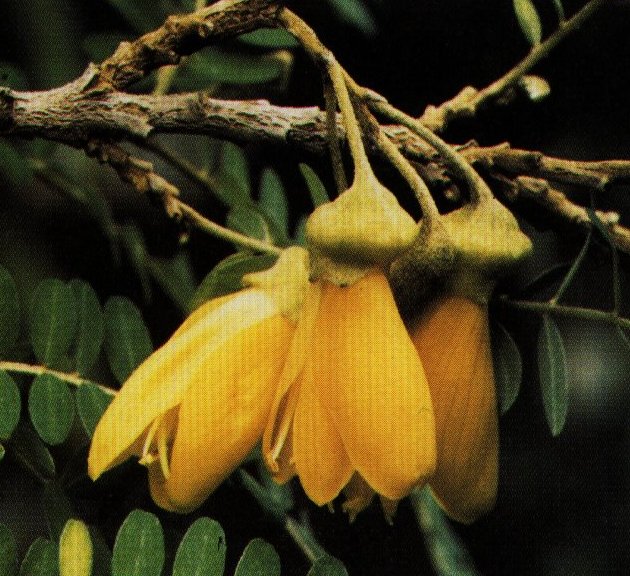 |
 |
 |
 |
 |
|
Ca10-4 |
Ca10-5 |
Ca10-6 |
Ca10-7 (262) |
|
CLOSE TO
THE FULL MOON: |
|
Dec 5 |
6 |
7 |
8 (342 = 18 * 19) |
|
Mula-19 (The Root)
SABIK (The Preceding One) = η Ophiuchi
(259.7), η Scorpii (259.9) |
NODUS I = ζ Draconis
(260.0), π Herculis (260.7),
RAS
ALGETHI = α Herculis
(260.8) |
SARIN = δ Herculis
(261.0), ο Ophiuchi (261.4)
*220.0 = *261.4 - *41.4
ALRISHA (α Piscium)
|
ξ Ophiuchi (262.2), θ
Ophiuchi, ν Serpentis, ζ, ι Apodis (262.4),
ι Arae (262.8), ρ Herculis (262.9)
*221.0 = *262.4 - *41.4 |
|
'Nov 8 |
9 |
10 (314) |
11 |
|
DAY 259 |
260 |
261 (= 9 * 29) |
262 |
|
CLOSE TO THE SUN: |
|
June 5 |
6 (157 = 314 / 2) |
7 |
8 |
|
5h (76.1)
ε Leporis (76.0),
CURSA
= β Eridani
(76.4), λ Eridani (76.7) |
μ Aurigae, μ Leporis (77.6) |
ĸ Leporis (78.0),
RIGEL
(Foot) = β Orionis
(78.1),
Flaming Star = IC405
(78.2),
CAPELLA = α Aurigae
(78.4), ο Columbae, τ Orionis (78.8)
*37.0 = *78.4 - *41.4
THUBAN (α Draconis)
|
λ Aurigae (79.0), λ Leporis (79.6), ρ
Aurigae (79.7)
ARCTURUS (α Bootis)
|
|
DAY 76 |
77 |
78 (= 6 * 13) |
79 |
|
...
Ecclesiastically, the equinox is reckoned to
be on 21 March (even though the equinox
occurs, astronomically speaking, on 20 March
in most years)
... |
414 = 314 + 100 = 10 * 41.4 (the right ascension position of
Bharani at the time of rongorongo).
|
ARIES: |
|
1 |
Ashvini |
β and γ
Arietis |
Horse's head |
April 17
(107) |
|
wife of the
Ashvins |
Sheratan and
Mesarthim |
|
2 |
Bharani |
35, 39, and
41 Arietis |
Yoni, the
female organ of reproduction |
May 1 (121) |
|
the bearer |
Musca
Borealis |
|
TAURUS: |
|
3 |
Krittikā |
M 45 Tauri |
Knife or
spear |
May 15 (135) |
|
the nurses
of Kārttikeya |
The Pleiades |
|
4 |
Rohini |
α Tauri |
Cart or
chariot, temple, banyan tree |
May 28 (148) |
|
the red one |
Aldebaran |
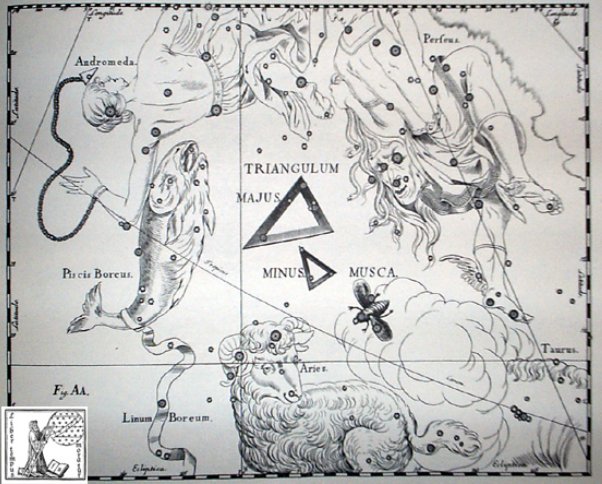
|
FEBR 24
(420) |
25 (56) |
26 |
27 |
28 |
 |
 |
 |
 |
 |
|
Gb8-6 |
Gb8-7
(448) |
Gb8-8
(449 - 229) |
Gb8-9 |
Gb8-10
(222) |
|
CLOSE TO
THE SUN: |
|
μ
Arietis (39.4),
HEAD OF THE FLY = 35 Arietis
(39.6),
KAFFALJIDHMA (Part of a Hand) =
γ
Ceti,
θ
Persei (39.8) |
π
Ceti,
ο
Arietis (40.0),
ANGETENAR (Bend in the River) =
τ¹
Eridani,
μ
Ceti (40.2),
RIGHT WING = 39 Arietis
(40.9) |
Bharani-2 (Yoni) /
Stomach-17 (Pheasant)
π
Arietis (41.2),
MIRAM (Next to the Pleiades) =
η
Persei
(41.3),
BHARANI
= 41 Arietis (41.4),
τ²
Eridani,
σ
Arietis (41.7) |
TA LING (Great Mound) = τ Persei
(42.4)
*1.0
= *42.4 - *41.4 |
ρ
Arietis (43.0),
GORGONEA SECUNDA =
π
Persei
(43.5),
ACAMAR (End of the River) =
θ
Eridani
(43.6),
ε
Arietis (43.7),
λ
Ceti (43.9)
DENEBOLA (β Leonis) |
|
April 29 |
30 |
May 1
(*41) |
2 (122) |
3 (488) |
|
°April 25 (115) |
26 (*36) |
27 |
28 (472
/ 4) |
29 |
|
'April 2
(92) |
3 |
4 (*14) |
5 (460) |
6 |
|
"March
19 (78) |
20 |
0h |
22 (446) |
23 |
|
CLOSE TO THE FULL
MOON: |
|
AUG 26 |
27 |
28 |
29
(*161) |
30 (242) |
|
31 Bootis (222.0),
YANG MUN (South Gate) =
α
Lupi
(222.1),
RIJL AL AWWA (Foot of the Barker) =
μ
Virginis
(222.5),
ο
Bootis (222.9) |
IZAR (Girdle) = ε Bootis
(223.0),
109 Virginis,
α
Apodis (No Feet)
(223.3),
μ
Librae (223.8) |
Al Zubānā-14a
(Claws) /
Visakha-16 (Forked) /
Root-3 (Badger)
ZUBEN ELGENUBI
(Southern Claw)
=
α
Librae
(224.2),
ξ
Bootis,
ο
Lupi (224.5) |
KOCHAB
(Kakkab,
the Star) = β Ursae Min.
(225.0), ξ Librae (225.7) |
KE KWAN (Cavalry Officer) =
β
Lupi
(226.3),
KE KWAN =
κ
Centauri (226.4),
ZUBEN ELAKRIBI (Claw of the Scorpion) = δ Librae
(226.8),
π¹
Oct.
(226.9)
*185.0 = *226.4 - 41.4 |
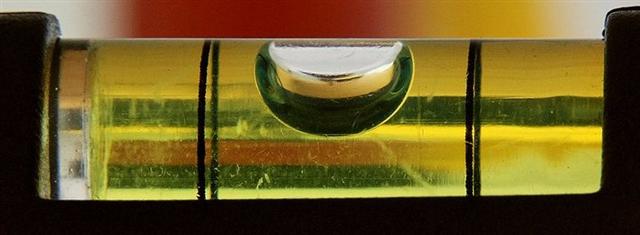 |
|
Oct 29
(*222) |
30 |
31 (304) |
Nov 1 |
2 |
|
°Oct 25 |
26 |
27 (300) |
28 |
29
(*222) |
|
'Oct 2
(*195) |
3 |
4 (277) |
5 |
6 |
|
"Sept 18 |
19
(*182) |
20 (263) |
21 |
Equinox |

|



















